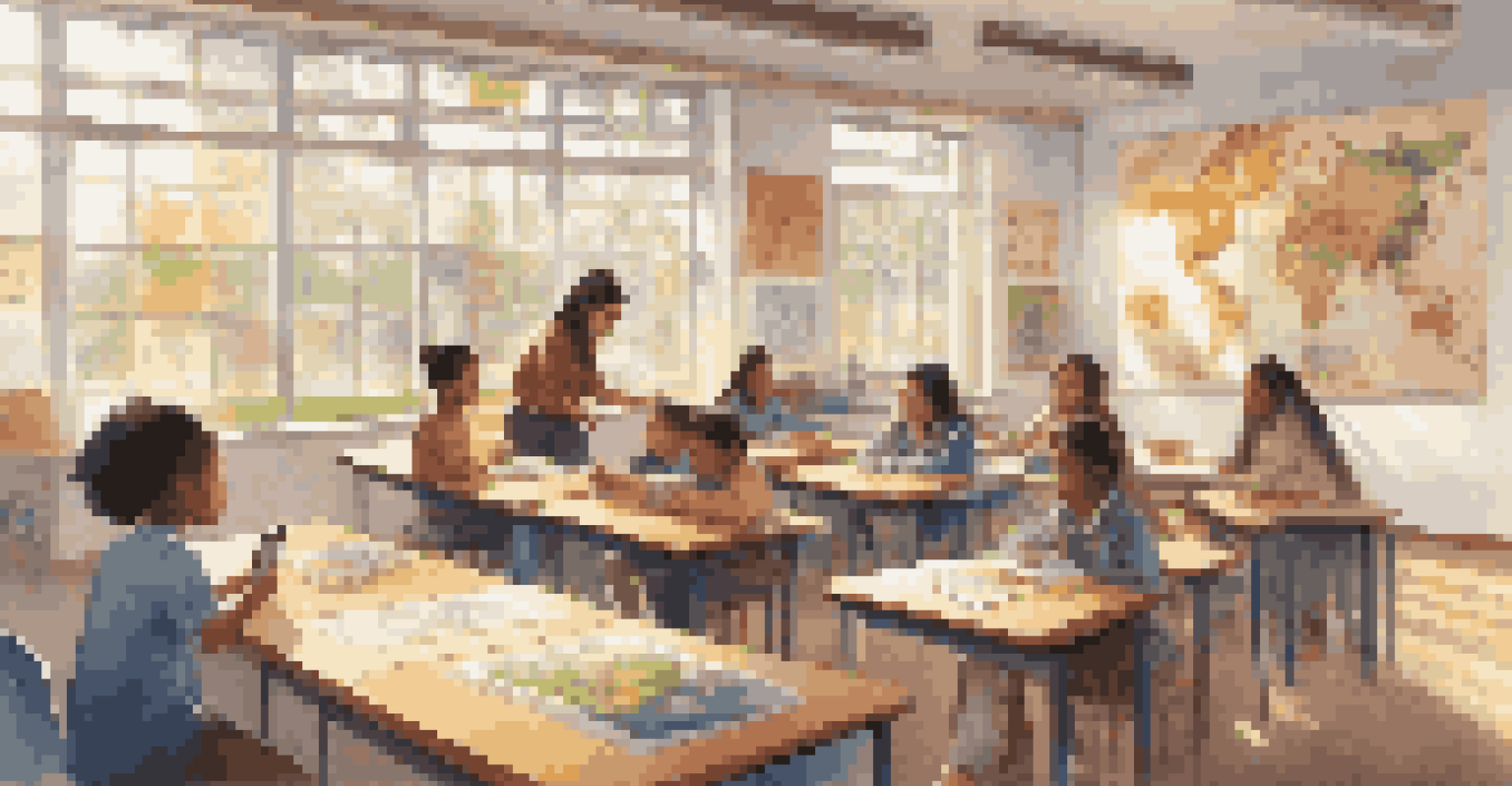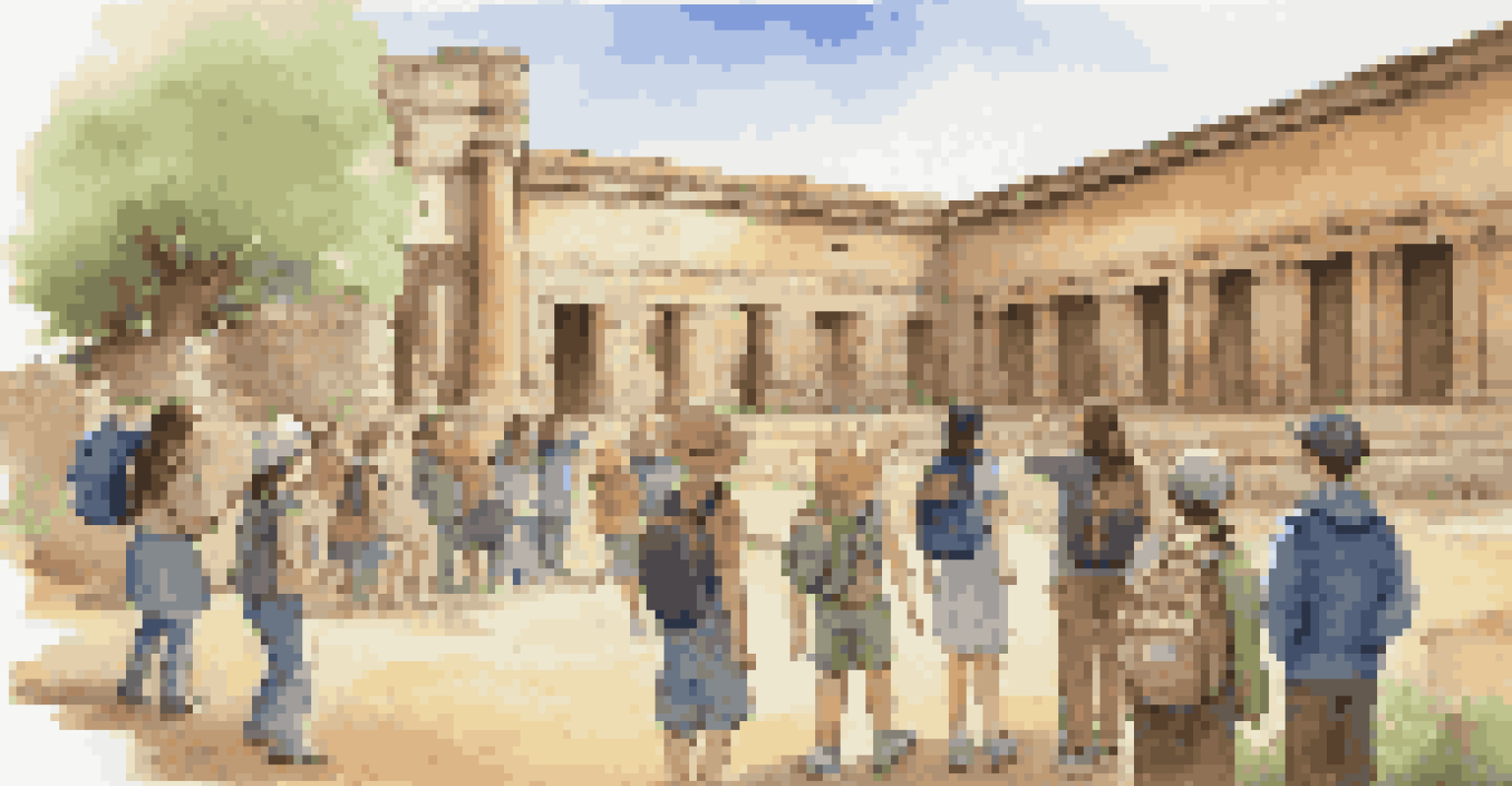Travel and Teach: Engaging with Local Education Systems

Understanding Global Education Systems: A Primer
When traveling to teach, it's essential to understand the local education system. Each country has its own unique approach to education, influenced by culture, politics, and economic conditions. For instance, a school in Finland may emphasize student autonomy, while a school in Japan may focus on group harmony and discipline.
Education is the most powerful weapon which you can use to change the world.
By familiarizing yourself with these differences, you can tailor your teaching methods accordingly. This not only enhances your effectiveness as an educator but also helps you connect with students and staff on a deeper level. For example, adopting culturally relevant teaching practices can significantly boost student engagement.
Moreover, understanding the local education system allows you to identify gaps or areas where your expertise can make a difference. Whether it's introducing new technologies or innovative teaching methods, your contributions can have a lasting impact.
Building Relationships with Local Educators
One of the most rewarding aspects of teaching abroad is the relationships you build with local educators. These connections can provide invaluable insights into the education system and the community. Sharing experiences and teaching strategies can lead to professional growth for everyone involved.

Collaborating with local teachers not only enriches your own teaching practice but also fosters a sense of camaraderie. For instance, co-planning lessons or exchanging feedback can create a supportive atmosphere that benefits both sides. This mutual respect and learning can lead to long-lasting friendships.
Understanding Local Education Systems
Familiarizing yourself with the local education system enhances your teaching effectiveness and helps build connections with students and staff.
Additionally, these relationships can help bridge cultural gaps. Local educators can offer guidance on cultural sensitivities and norms, ensuring that your teaching is respectful and impactful within the community.
Adapting Your Teaching Style to Local Needs
As an educator traveling abroad, adapting your teaching style to meet local needs is crucial. Each classroom possesses its own dynamics, influenced by student backgrounds and cultural expectations. For instance, more interactive and hands-on approaches might work wonders in one region, while structured and formal methods might be more effective in another.
The beautiful thing about learning is that no one can take it away from you.
To make this adaptation easier, consider observing local teachers in action. By witnessing their methods and classroom management techniques, you can gain insights that will help you adjust your own style. This practice not only shows respect for local practices but also enhances learning outcomes for students.
Furthermore, engaging in open dialogues with students about their preferences can lead to a more collaborative learning environment. By incorporating their feedback, you’re not only adapting but also empowering students to take ownership of their education.
Navigating Cultural Differences in the Classroom
Cultural differences can significantly impact classroom dynamics and learning experiences. It’s essential to approach these differences with sensitivity and an open mind. For example, in some cultures, direct eye contact is a sign of respect, while in others, it may be seen as confrontational.
Being aware of these nuances can help prevent misunderstandings and foster a more inclusive environment. Take the time to learn about cultural practices and values that may influence student behavior and engagement. This knowledge can guide your interactions and help you build trust with your students.
Building Relationships with Educators
Forming relationships with local educators fosters professional growth and cultural understanding, enriching the teaching experience for everyone involved.
Incorporating culturally relevant materials into your lessons can also promote inclusivity. By recognizing and celebrating the diversity in your classroom, you create a space where all students feel valued and understood.
Utilizing Local Resources for Enriched Learning
Traveling to teach offers a unique opportunity to utilize local resources for enriched learning experiences. From local libraries to community centers, engaging with these resources can enhance your curriculum. For instance, a history lesson can be brought to life by visiting local historical sites.
Additionally, collaborating with local organizations can provide students with real-world experiences. Partnering with local businesses, for example, can lead to field trips that connect classroom learning with the community. This not only deepens understanding but also fosters a sense of belonging.
Moreover, local resources can be a treasure trove of cultural materials. Incorporating local literature, art, and music into your lessons can make learning more relevant and engaging for students.
The Role of Technology in Global Education
Technology plays a vital role in today's global education landscape. It can bridge gaps between different education systems and facilitate collaboration among educators worldwide. For instance, using online platforms can connect you with other teachers, allowing for the exchange of resources and ideas.
Moreover, technology can enhance student engagement and learning outcomes. Integrating tools like virtual reality can offer immersive experiences, making lessons more interactive and memorable. For example, a geography lesson can transform when students can explore landmarks virtually.
Adapting Teaching to Cultural Needs
Adapting your teaching style to align with local cultural expectations and student preferences creates a more engaging and inclusive classroom environment.
However, it’s essential to consider the availability of technology in the local context. Understanding the resources at your disposal will help you make informed decisions about how to integrate technology effectively into your teaching.
Reflecting on Your Teaching Experience Abroad
Reflecting on your teaching experience abroad is crucial for personal and professional growth. Taking the time to evaluate what worked well and what didn’t can provide valuable insights for future endeavors. Consider keeping a journal where you document your experiences, challenges, and successes.
This reflection process not only helps you identify areas for improvement but also allows you to celebrate your achievements. It’s an opportunity to recognize the positive impact you’ve made on your students and the community. Sharing these reflections with fellow educators can foster a culture of continuous learning.

Furthermore, reflecting on your experiences can help you understand how they shape your teaching philosophy. This newfound perspective can enrich your future teaching practices, allowing you to become an even more effective educator.